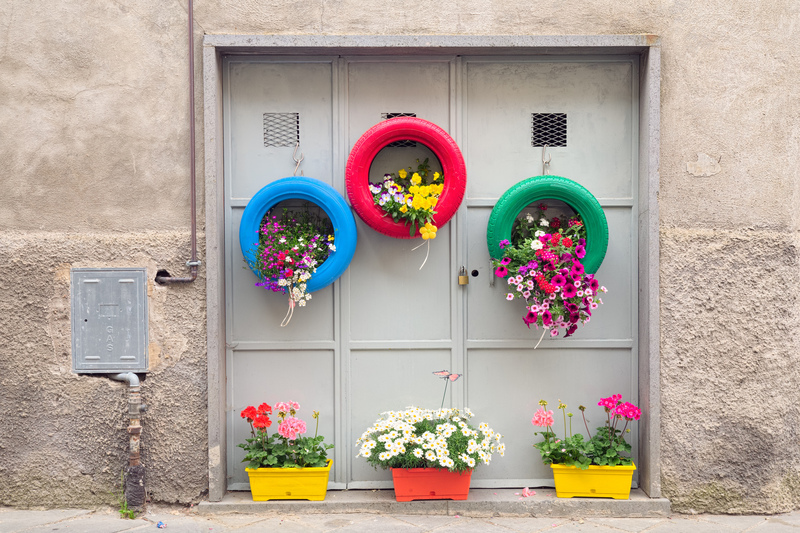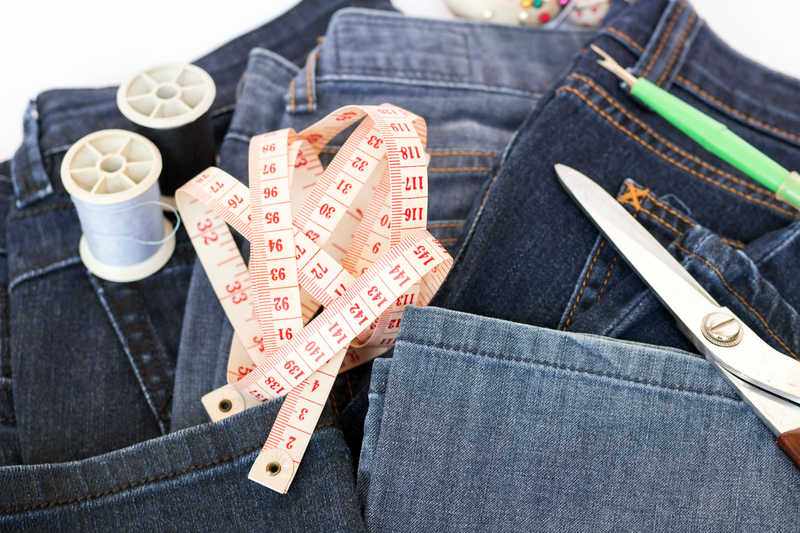Simple Steps to Help Kids Understand the Importance of Recycling
With environmental challenges on the rise, it's important to help the younger generation develop healthy eco-friendly habits early on. Teaching kids about recycling can shape how they view waste, resources, and the planet as a whole. But how do you make this complex topic approachable and engaging for them? In this comprehensive guide, we'll explore simple steps to help kids understand the importance of recycling. You'll find practical activities, conversation starters, and creative ideas to nurture responsible, earth-conscious youngsters.
Why Teach Children About Recycling?
Before exploring the practical steps, let's look at why recycling should be an integral part of childhood education. Understanding the reasons behind recycling helps children grasp its value beyond just tossing bottles in a blue bin.
- Preserves Natural Resources: Recycling reduces the need for raw materials, conserving forests, water, and minerals.
- Reduces Pollution: Less waste sent to landfills or burned means cleaner air and water for everyone.
- Protects Wildlife: Proper sorting and reusing materials help minimize pollution that can harm animals and their habitats.
- Encourages Responsibility: Kids learn to think critically about their actions and make sustainable choices.
- Builds Green Habits Early: Habits formed early in life are likely to stick--even into adulthood.

How to Explain Recycling to Kids
Kids are naturally curious, so capturing their interest in the reasons behind recycling is essential. Here's a simple way to explain recycling:
"When we recycle, we take things like paper, plastic, and cans and turn them into something new instead of throwing them away. This helps keep our planet clean and safe for people and animals."
Visuals are extremely helpful. For example, show them a plastic bottle and then find an item made from recycled plastic. Make sure they understand that recycling is a cycle: use, collect, recycle, reuse.
Simple Steps to Guide Kids Toward Effective Recycling
1. Lead by Example
Children copy the adults in their lives. Show them how you separate trash, what you put into each recycling bin, and talk openly about recycling at home. Celebrate family efforts when everyone remembers to recycle the right way.
2. Use Fun, Age-Appropriate Activities
- Sorting Games: Give kids a clean pile of common waste items (plastic, paper, cans, glass) and ask them to put them in the correct bin. Turn it into a friendly competition--who can sort the most items correctly?
- Recycle Crafts: Challenge kids to create something new from old materials, like bird feeders from bottles or art from cardboard.
- Story Time: Read books about recycling for children, many of which feature fun characters and colorful illustrations.
3. Take the Mystery Out of Recycling Symbols
Show kids the recycling triangle symbol--explain what each number or label means. Look for the symbol on various household products and sort them together. This not only teaches them what is recyclable but also builds early awareness of product packaging.
4. Visit Your Local Recycling Center or Facility
Plan a field trip with your child to see where recycled items go. Many centers offer tours or kid-friendly educational programs. Seeing giant sorting machines and bales of materials helps kids realize that recycling is a real, ongoing process.
5. Incorporate Recycling Into Daily Routines
Consistency turns recycling into a lifelong habit. Place clearly labeled bins in accessible spots at home and school. Remind your child why sorting items is important and praise their efforts.
- Meal Times: Have kids help clear the table, deciding what gets recycled or composted.
- Cleaning Up: After crafts or play, ask which scraps can be recycled.
- Shopping: Let them help pick recycled-content products and reusable bags or containers.
Creative Ways Kids Can Make Recycling Fun
Start a Recycling Challenge
Set a family or classroom goal to collect as much recyclable material as possible over a week or month. Keep track of progress on a chart or calendar, and reward everyone with a special treat when you hit your goal.
Introduce Upcycling Projects
Go beyond recycling by teaching upcycling. Turn egg cartons into seed starters, jars into storage for crayons or nature finds, or boxes into playhouses. By reusing materials creatively, kids see that "trash" can have a second life.
Get Involved in Community Cleanups
Volunteer for a neighborhood cleanup, park beautification, or recycling event. Picking up litter and sorting it together helps children see firsthand how waste harms environments and people--and how they can be part of the solution.
Common Kid Questions About Recycling, Answered
-
"What happens if we don't recycle?"
- If people throw everything away, landfills fill up faster, we waste resources, and animals can get sick from trash that ends up in oceans and forests. Recycling helps prevent these problems.
-
"Is it really worth it?"
- Absolutely! Every bottle, can, and paper recycled saves energy and raw materials. One small action can make a big difference when everyone helps.
-
"Can we recycle everything?"
- No, some things, like certain plastic bags and greasy pizza boxes, can't go in regular recycling bins. If you're unsure, ask an adult or check your community's recycling rules.
-
"What does our trash turn into?"
- Recycled materials can become playgrounds, T-shirts, furniture, and more! For example, old newspapers can become new paper, and plastic bottles can be turned into park benches.
Tips for Parents and Educators: Building Recycling Awareness
The simplest way to nurture recycling habits is to make the process visible, regular, and meaningful.
- Model Good Behavior: Always sort your waste and explain why you're doing it.
- Include Kids in Planning: Let children help label bins or pick collection days.
- Make Education Ongoing: Refer to recycling lessons across different subjects--science, art, or even math.
- Share Success Stories: Celebrate recycling milestones and how your family or class is helping the planet.
- Stay Up-To-Date: Different towns recycle differently--learn the latest rules to sort materials correctly.
Fun Books and Resources to Support Kids' Understanding of Recycling
- "The Adventures of a Plastic Bottle" by Alison Inches
- "Why Should I Recycle?" by Jen Green
- Local library recycling workshops and STEM activities
- Online games teaching recycling basics (check out reputable environmental websites)
Overcoming Common Challenges
Kids will sometimes put the wrong items in the wrong bin, forget to sort, or lose interest. That's normal! A few strategies can help:
- Keep It Simple: Use picture labels for bins and repeat key messages regularly.
- Give Grace: Gently remind, don't scold--positive reinforcement works best.
- Refresh the Routine: Change up recycling chores or introduce new incentives to keep kids engaged.

Building a Lasting Commitment to Recycling
Ultimately, when kids realize that recycling is about protecting animals, saving energy, and keeping their world beautiful, they're more likely to carry these habits into adulthood. The goal isn't perfection--it's progress and a sense of personal responsibility.
Quick Recap: Steps to Help Kids Learn the Importance of Recycling
- Explain the "why" using stories, visuals, and real-life examples.
- Practice sorting and recycling together at home and school.
- Make recycling a daily, visible routine.
- Use creative activities, crafts, and games to reinforce learning.
- Explore community and environmental resources together.
- Model positive behavior and celebrate every effort.
Conclusion: Nurturing Eco-Friendly Kids for a Greener Tomorrow
Teaching children about recycling doesn't have to be complicated. By following these simple steps to help kids understand the importance of recycling, parents and educators can inspire young eco-warriors to make a difference--now and in the future. Every recycled can, every upcycled box, and every informed choice is a small but mighty step toward a more sustainable world.
Start today with a conversation, an activity, or a trip to your recycling center. Together, you'll help equip the next generation with the knowledge and passion they need to protect our Earth for years to come.
Remember: Teaching kids about recycling isn't just about sorting trash. It's about empowering them to care about the planet and create positive change--one small action at a time.